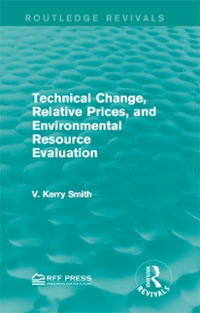Question
19 . If the government did not offer the too-big-to-fail safety net: Multiple Choice large banks would be more disciplined by the potential loss of
19 . If the government did not offer the too-big-to-fail safety net:
Multiple Choice
- large banks would be more disciplined by the potential loss of large corporate accounts.
- the moral hazard problem of insuring large banks would increase.
- the moral hazard problem of insuring large banks would not be affected.
- the FDIC deposit insurance limits would have to be raised.
20 . Governments supervise banks mainly to do each of the following, except:
Multiple Choice
- reduce the potential cost to taxpayers of bank failures.
- be sure the banks are following the regulations set out by banking laws.
- reduce the moral hazard risk.
- eliminate all risk faced by investors.
21 . The fact that banks can be either nationally or state chartered creates:
Multiple Choice
- situations where some banks go unregulated.
- situations where banks operating in more than one state can escape regulation.
- regulatory competition.
- banks being simultaneously regulated by more than one agency.
23 . Banks are required to disclose certain information. This disclosure is done for all of the following reasons except:
Multiple Choice
- to enable regulators to more easily assess the financial condition of banks.
- to allow financial market participants to penalize banks that carry additional risk.
- to allow customers to more easily compare prices for services offered by banks.
- create uniform prices for standard bank services.
24 . One reason a bank's officer may be reluctant to write off a past-due loan is that it will:
Multiple Choice
- increase the bank's liabilities.
- decrease the bank's assets and capital.
- increase the bank's liabilities and assets, requiring more capital to be held.
- make the bank's accounts less transparent.
25 . A bank supervisor examines the bank's portfolio of loans to see if the loans are being repaid in a timely manner. In terms of the acronym CAMELS, this would be part of rating the bank's:
Multiple Choice
- asset quality.
- losses.
- management.
- earnings.
26 . Which of the following is not a goal of the Dodd-Frank Act of 2010?
Multiple Choice
- To anticipate and prevent financial crises by limiting systemic risk
- To end "too big to fail"
- To promote competition
- To reduce moral hazard
27 . The U.S. has many banks because:
Multiple Choice
- small banks are more profitable than large banks.
- many states outlawed bank branching.
- the Great Depression caused the failure of the large banks, leaving many small banks.
- the Glass-Steagall Act forced the splitting up of large banks.
28 . The sharp reduction in the number of banks that has occurred since the mid-1980s has been due primarily to:
Multiple Choice
- bank failures from increased competition.
- bank mergers.
- the closing of banks by federal regulators.
- the revoking of state bank charters.
33 . If depositors lose faith in a bank, the severity of bank runs can be compounded by the:
Multiple Choice
- first-come, first-served nature of bank withdrawals.
- policy that large depositors can withdraw their deposits before smaller depositors can.
- existence of deposit insurance.
- large amounts of vault cash
35 . Bank runs:
Multiple Choice
- can infect both healthy and insolvent banks.
- infect only healthy banks.
- infect only insolvent banks.
- only occur in transition economies.
37 . One reason customers do not care about the quality of their bank's assets is:
Multiple Choice
- most people cannot distinguish an asset from a liability.
- the quality of a bank's assets changes almost daily.
- they assume the bank only has high quality assets.
- with deposit insurance, there isn't any real reason to care; their deposits are protected even if the bank fails.
38 . One negative consequence of regulatory competition is:
Multiple Choice
- it is expensive.
- financial institutions are over regulated at a cost to customers.
- financial institutions often seek out the most lenient regulator.
- it minimizes competition.
39 . One lesson learned from the bank panics of the early 1930's is:
Multiple Choice
- The lender of last resort functionguarantees that bank panics are a thing of the past
- The mere existence of a lender of last resort will not keep the financial system from collapsing
- Only the U.S. Treasury can be a true lender of last resort
- The financial system will collapse without a lender of last resort
Step by Step Solution
There are 3 Steps involved in it
Step: 1

Get Instant Access to Expert-Tailored Solutions
See step-by-step solutions with expert insights and AI powered tools for academic success
Step: 2

Step: 3

Ace Your Homework with AI
Get the answers you need in no time with our AI-driven, step-by-step assistance
Get Started


